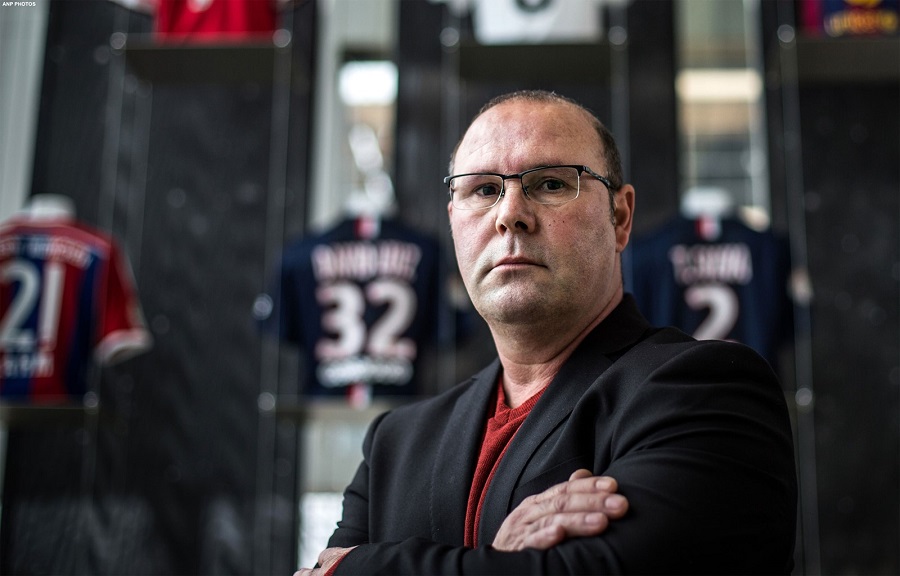People conversant with football will most likely have heard of the word Bosman. It is not a fancy, exotic term for dribblers or masters of the art of defending. It is actually or arguably, the name of the man that changed football due to a landmark ruling 26 years ago.
Jean-Marc Bosman was not a spectacular footballer in the mould of George Weah, Ronaldo, and Zidane, supremely gifted players of his generation, but his impact can be said to rival them.
In 1995, Bosman, 30 years old, had won a landmark judgement that changed the face of football forever.
READ: Football fans cashing out with Crypto as Juventus’ fan token rises by 596.98%
The genesis…
In 1990, Belgian midfielder, Jean-Marc Bosman, 25, was approaching the end of his contract at RFC Liege. He had played for the team for two years but things had not gone as planned. French second division side, Dunkirk had offered him an improved deal.
The deal fell through after Liege demanded a fee, which was out of reach for Dunkirk. Bosman’s wages were cut by an astonishing 75%, which Bosman felt was too steep. He decided to go to court.
The legal battle
Represented by lawyers, Luc Misson and Jean-Louis Dupont, Bosman cited the 1957 Treaty of Rome, which recognized the rights of players anywhere in Europe. He took the case to the European Court of Justice against the Belgian FA, RFC Liege and UEFA.
On the pitch however, his career fizzled out. He was banned by the Belgian FA for not signing the contract at Liege. Other professional clubs steered clear of him, as they felt he was bad news, although he had spells with Saint Denis and Saint Quentin, as well as other lower league clubs.
READ: A £250 million yearly payout too hot to handle for Europe’s biggest clubs
The outcome
The clubs and European football authorities were against his fight, as it would mean that players could demand huge signing-on fees if they moved to clubs on free transfers. It would also mean that clubs started panicking when players entered the last two years of their contracts, as it would mean they had to offer fresh terms or risk losing him on a free.
On December 15, 1995, football will change and not even Bosman could imagine the magnitude of what he and his lawyers had achieved.
The landmark judgment allowed him and other players to move on a free transfer to another club once their contracts ended without the buying club making any payment to the selling club. It changed the face of football, giving players and their representatives greater power when it came to choosing their next clubs.
READ: Football-based Crypto, is world best performing Crypto in 7 days
Players tapped into it almost immediately
The players acted as though they had been waiting for the ruling and started using it immediately. Edgar Davids used the Bosman ruling to move from Ajax to AC Milan back in 1996 while his club and international teammate, Patrick Kluivert benefited, moving in the same direction a year later.
Brian Laudrup, the younger brother of the more famous Michael, moved from Rangers to Chelsea in 1998 while Steve McManaman made the switch to Real Madrid in 1999 from Liverpool, a move that still torments the Anfield fans even till this day.
At that time, the most important Bosman transfer was that of Sol Campbell, who made the switch from Tottenham to crosstown and bitter rivals, Arsenal, in 2001, where he earned a then mammoth £60,000 a week, plus bonuses and a signing-on fee of about £2m a year.
Other things changed too
Before the Bosman ruling, clubs could not name more than three foreign players in their squad for continental games, with an additional two players coming through from the academy. It was known as the “three-plus-two” rule. This was why Sir Alex Ferguson replaced Peter Schmeichel with Gary Walsh in a 4-0 drubbing of Manchester United by Barcelona in the Champions League.
Ryan Giggs, Mark Hughes and Roy Keane were designated as foreign despite being from Wales, Scotland and the Republic of Ireland respectively. After the Bosman ruling, clubs were free to play all EU players. This would help Manchester United in 1999, as they fielded 8 players in the final, who would have been considered “foreign” some years previously.
Jean-Marc Bosman today…
Bosman, despite his impact on football, has not had the sort of life he would have liked. In a 2015 interview with Daily Mail, he said, “I’m still waiting for the others to say thank you – Ronaldo, Beckham, all of them.” Despite receiving a £312,000 compensation package in 1998, he has suffered, struggling with both alcohol addiction and depression.
